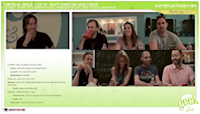Why Adult D&D Novels Have Disappeared and Were They Any Good?

What happened to D&D novels? Were they any good? As someone who read a lot of them as a kid, and with the game booming right now, I decided to re-visit and find out. Let's briefly go over the history to provide some perspective. For decades TSR (and then WotC) published novels as part of the D&D IP (producing 623 before licensing them out to HarperCollins in 2017). In the early days some of these became very successful, but Hasbro (who own WotC) has given up on it (assuredly because it had ceased being profitable). Margaret Weis and Tracy Hickman, who had taken Dragonlance independent early on, also stopped publishing five years earlier (clearly for similar reasons). To touch on the article cited above, the author (Adam Whitehead of The Wertzone ) did not dive into the declining sales numbers like I did researching my article last summer and so he doesn't draw the obvious conclusion that you don't slow down or stop publishing if it's making you money (the num...


